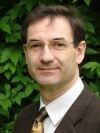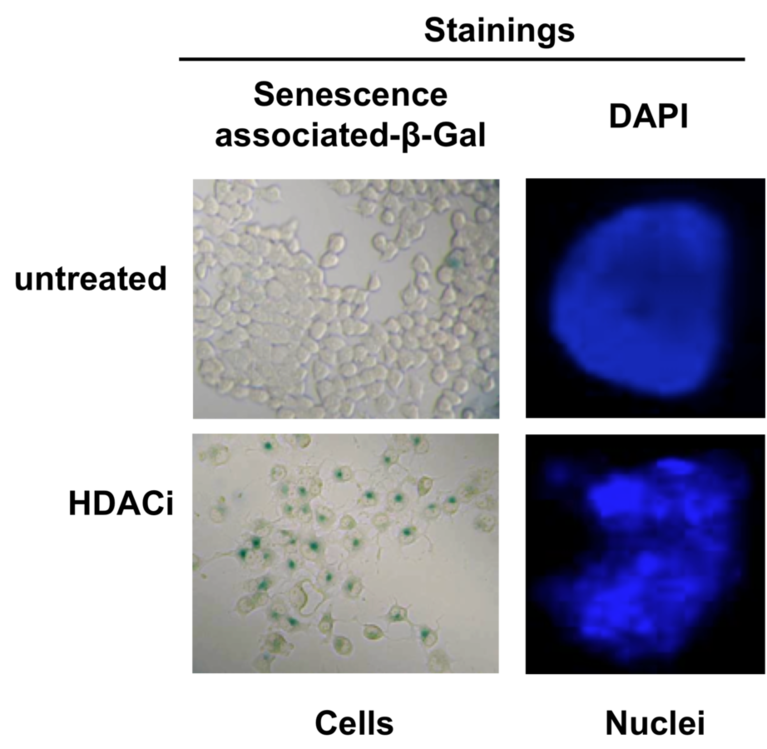
Cellular senescence leads to an irreversible block of cellular division capacity (G0-Phase of cell cycle) both in cell culture and in vivo. The induction of an irreversible cell cycle arrest is very useful in the treatment of cancer. Therefore, targeting cellular senescence may represent a new approach for cancer therapy. However, senescent cells exhibit the senescence-associated secretory phenotype (SASP) that may influence other neighboring cells and cancer cells in their differentiation and proliferation.
Cellular senescence is associated with a dramatic change in nuclear architecture observed by formation of heterochromatic foci. It is also associated with the expression of cell cycle inhibitors such as p15, p16, ARF and p21. The detailed molecular mechanisms of induction of cellular senescence are unknown.
Interestingly hormones may induce cellular senescence in cancer cells. Specifically, we will use human prostate cancer cells. Prostate cancer is a major age-related disease and the second cause of cancer death in males. Androgen-dependent and castration resistant prostate cancer cells will be used. Importantly, both cell types are regulated by the androgen receptor signaling. Both cell types will be treated with androgens or androgen-receptor antagonists. Senescence specific markers will be analyzed including chromatin changes. Further, Western blotting and real-time PCR will be employed for detection of changes of key factors involved in cellular senescence.


